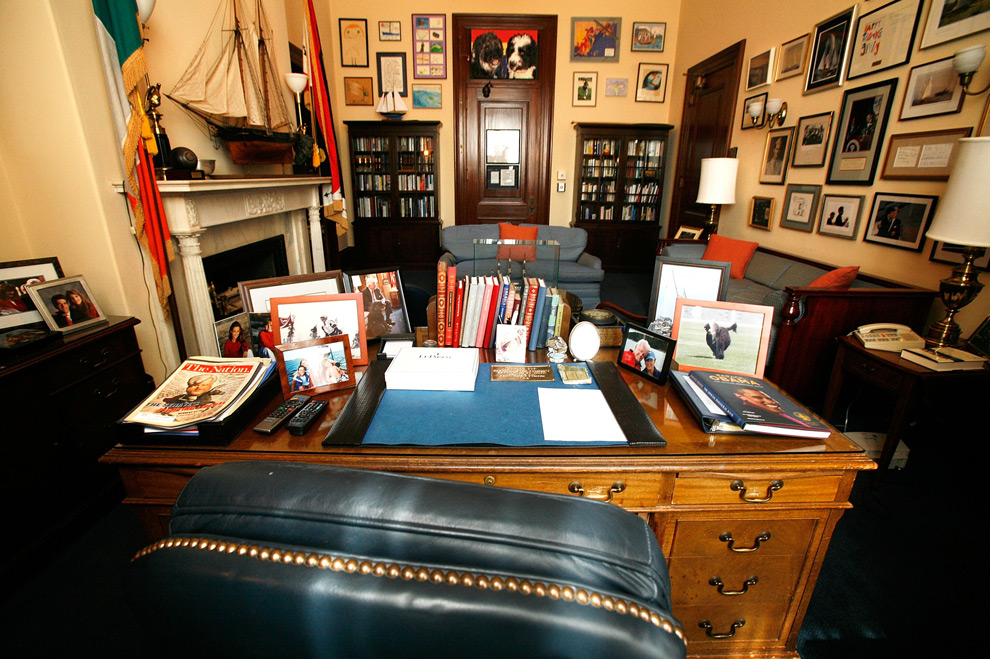
by Bret Capranica | Sep 13, 2009 | Featured Articles, Prayer
Intercession I normally need something to keep me focused and directed when it comes to interceding for people and issues. Here’s how I break it down: Daily Intercessions. I tend to pray through a concentric circle of relationships when interceding for others and issues. This would begin with my own heart and the schedule I have for the day. My Wife. I have a list of passages that speak directly to her roles as a Christian, wife and mother and I normally use one of these for the foundation of my time of intercession for her. I have a list of specific requests that I have written down and a place beside each one to record the answer to these requests. My Children. I have another list of passages to use in prepping my mind to pray for my children. I pray for their salvation and for specific issues in their life and for my own involvement in their life as a father and Kelly and my input into their lives as parents. Church Leadership. Again, I use a series of specific verses and a list of desires I have for our leadership team. I use the passages as a beginning point for praying for each of them and their family members. I have ongoing lists of specific requests for our leadership team. List of ongoing miscellaneous requests. I have requests that date back to when I was in Junior High. I have simple pages that break down into a column for requests and one for answers. Anything and everything gets put here. Yes, it bleeds over into other...

by Bret Capranica | Sep 12, 2009 | Featured Articles, Prayer
Using the Word Where does the Bible fit into your concentrated time of prayer? For me it must be integral if my prayer life is to remain fresh. Connect the word to your prayer time. While my “quiet time” might appear to be segmented (if I listed what I do) into sections of Bible reading and then intercession, it really isn’t the case. My time in the Word (I currently use the Discipleship Journal plan, reading through 4 sections a day), is the platform for and springboard to all I pray about and for. I generally write down a verse or two into my journal from my reading, and spend a few minutes meditating and praying through it. I often write what I’m praying, which keeps me concrete in my thoughts (and often awake). I may glance over all the verses I have written down and think through how the totality of them tend to address my heart and life and write a response. This is usually a time for confession of sin and pleading for greater insight and application. When it comes to my times of intercession (which I will write about tomorrow), I generally have a few passages assigned to the topics I have arranged around my intercessions (again, more tomorrow). I will read one of these sections and use it as the basis for my time of intercession. D. A. Carson’s book on the prayers of Paul is a real help here and a huge stimulus in my thinking on prayer. Connect what you heard from sermons to your prayer time. I take my sermon notes in...

by Bret Capranica | Sep 10, 2009 | Featured Articles, Prayer
So, what do you do when you actually get to the point when it’s time to pray? What do you say? How do you stay focused without being so rigid that your prayer life feels little more than sitting on Santa’s knee telling him what you want for Christmas? Worship. By worship I don’t necessarily mean singing or listening to “worship music” (however that gets defined). I do mean spending a healthy amount of time seriously considering, rehearsing, and enjoying who God is. Thinking again about Christ and why He died and rose from the dead. Considering what are the very powerful implications of the Son of God dying in my place. I need to linger longer in worship. In fact, one of the greatest men of prayer I have ever known, caught my attention when he said in a lecture on prayer, that later in his life he found himself spending more time worshiping than asking. For him that did not mean sitting cross-legged and humming choruses from the 1970s. It was not some form of Christianized yoga. It meant reminding himself (primarily by means of reading the Scripture) of who God was and how His character was being expressed in his life. This shouldn’t be rocket science. Jesus informed the disciples that the opening elements of how they should pray should be comprised fundamentally of worship – hallowing the name of “God our Father.” Perhaps this was Job’s greatest challenge as well as He begged God for an answer to the reason behind his life-wrenching trials. By the end of the book, Job’s hand is over his...

by Bret Capranica | Sep 8, 2009 | Featured Articles, Ordinary Pastor, Prayer
I want my prayer life to grow and be more and more significant. Here are a few steps and thoughts I’m pursuing to deepen my pursuit of the Lord in prayer. Commitment. I’m assuming a time set aside for significant prayer. Some don’t go along with this. However, I think there is enough example from the life of Jesus (who withdrew often for concentrated times of prayer), or Paul who called us to devote ourselves to prayer (Ephesians 6; Colossians 4:3). The psalmists and their very intricate prayers suggest that they lingered long and often in significant times of supplication. Thus there should be a heart-driven commitment to regular times of personal concentrated prayer. So how can we learn to develop a more significant time of concentrated prayer. Disable Distractions. The internet. Umm, if you’re reading this, you’re using it. I find that this has become one of the single greatest distractions to good use of time in general and significant prayer specifically. I can literally Twitter my time away in the morning and lose time for significant prayer. I love to read the news and my iPhone makes it and e-mail continually accessible. Going off-line – putting my very portable laptop and handheld out of reach keeps the internet from being a prayer killer. Other reading material. The place where I pray is also the place where I do most of my significant reading. I am attracted to good books and I can quickly spend an hour reading through one of the myriads of books stacked around me and my place of prayer. It is a discipline to keep only...

by Bret Capranica | Aug 29, 2009 | Featured Articles, Politics
Obvious lessons can be learned from Senator Kennedy’s funeral; the description of the gospel is one of the most interesting. In my years of scattered interest in politics, Christianity and the gospel are not words that came to mind first and foremost when hearing Ted Kennedy’s name. His Irish Catholic heritage was obviously deep in his family and for him personally. Much has been made of Senator Kennedy’s recent confessional letter to the Pope. His Catholicism is concerning enough, but is not what I found most intriguing (though it is interesting to see how many call his Catholicism ‘faithful’ when he opposed so much of it publicly). I won’t comment on the funeral mass – that’s another issue. Instead, I found it fascinating to listen to the more liberal commentators stretch themselves to talk about how “Christian” Senator Kennedy was. Social work alone was the heart of Jesus’ message. Matthew 25 and its description of what was done for “the least of these” is the single defining mark of Christianity. The gospel is “working for the little guy.” Personal immorality is inconsequential when working for social justice. A denial of the exclusivity of the gospel of Jesus as the only way to the Father. Denial of genuine discipleship and loyalty to Christ as presented in the whole of the Bible. Very little was said of Jesus Christ outside of social justice terms. A division between the social ethic of Jesus and the rest of the New Testament. Only certain social issues are worth mentioning. Much was championed about his vocal call for an increase in the minimum wage, and little...

by Bret Capranica | Aug 29, 2009 | Culture, Featured Articles
Being on vacation, I spent a little time watching the funeral events surrounding the death of Senator Edward Kennedy. I realize that I know little about how things were in reality. However, here are a few thoughts on what I thought was helpful to learn from the Senator’s life: Forceful Convictions. No one would deny the conviction and fire behind the Senator’s political convictions. You don’t have to flatten your convictions in order to be effective; often the opposite is true. Personal Care. The stories of Senator Kennedy’s personal care for collegues, family, and constituents were ennumerable, from notes to calls and visits. He was often the first and sometimes unexpected person to contact someone who had personal tragedy. Personal Graciousness. While a lion in the Senate chamber, he was known as gracious in person and behind the scenes. Adversaries Can Still Be Patriots. Perhaps this is a discipline of generational difference. I have seen this to be a truth evident in a number of those in older generations, where political and even personal convictions can be forcefully delivered without being personally demeaning; but rather, still maintaining personal regard and respect. Adversaries Can Still Be Friends. While he publicly excoriated Republicans, he personally befriended many of them. There is a missing lesson to be learned here. Family Loyalty. The Kennedy’s are a storied family, but there seems to be a strong sense of loyalty and genuine affection among them to one another. Family Involvement. The Senator, as powerful as he was and as busy as he no doubt was, seemed to deeply involve himself in the life of his...













